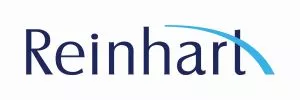RETIREMENT PLAN DEVELOPMENTS
IRS Issues Guidance on Employee Plans Compliance Resolution System
On May 25, 2023, the IRS released Notice 2023-43 providing guidance on the expansion of the Employee Plans Compliance Resolution System (EPCRS) required by section 305 of the SECURE 2.0 Act. The notice is not intended to be a comprehensive guide to all EPCRS updates but is instead designed to address the impact of section 305 prior to the update to Rev. Proc. 2021-30. Specifically, the notice:
- Provides additional detail on the definition of eligible inadvertent failures;
- Authorizes plan sponsors to self-correct certain eligible inadvertent failures, regardless of the errors significance, prior to Rev. Proc. 2021-30 being updated (subject to certain exceptions and conditions); and
- Informs plan sponsors of the required documentation that must be maintained upon discovery and self-correction of an eligible inadvertent failure.
The notice also clarifies that custodians of individual retirement accounts are not permitted to correct errors under the expanded self-correction guidance.
Plan sponsors may rely on this notice until Rev. Proc. 2021-30 is updated pursuant to section 305 of the SECURE 2.0 Act. The IRS and the U.S Department of the Treasury invite comments on the guidance contained in the notice by August 23, 2023.
HEALTH AND WELFARE PLAN DEVELOPMENTS
IRS's Six Situations to Explain the Substantiation Rules
The IRS Office of Chief Counsel recently issued Memorandum Number 202317020 (Memorandum), which reiterates that claims under health and dependent care flexible spending accounts must be substantiated. Using six commonly-faced situations to better explain the substantiation rules, the Memorandum serves as an important reminder to sponsors of Code section 125 plans to ensure all claims are properly substantiated.
IRS Issues New HSA Limits for 2024
Recently, the IRS announced cost-of-living adjustments to the applicable dollar limits for health savings accounts (HSAs), high-deductible health plans (HDHPs) and excepted benefit health reimbursement arrangements (HRAs) for 2024. With the exception of the HSA catchup contribution for individuals ages 55 and older, all dollar limits currently in effect will change for 2024. Provided below are the change in limits from 2023 to 2024:
| HDHP — Maximum annual out-of-pocket limit (excluding premiums): | |
| Self-only coverage | $7,500 to $8,050 |
| Family coverage | $15,000 to $16,100 |
| HDHP — Minimum annual deductible: | |
| Self-only coverage | $1,500 to $1,600 |
| Family coverage | $3,000 to $3,200 |
| HSA — Annual contribution limit: | |
| Self-only coverage | $3,850 to $4,150 |
| Family coverage | $7,750 to $8,300 |
| Catchup contributions (ages 55 and older) | $1,000 to $1,000 |
| Excepted Benefit HRA: | |
| Annual contribution limit | $1,950 to $2,100 |
Plan sponsors should update plan administration and payroll systems
for the 2024 cost-of-living adjustments to comply with the new
limits.
UPCOMING COMPLIANCE DEADLINES AND REMINDERS
Deadline for the DOL Fiduciary Rule and Prohibited Transaction Exemption
The final compliance deadline requiring the completion of an annual retrospective review report of transactions covered by the Prohibited Transaction Exemption 202002 from the prior year must be completed no later than six months following the end of such annual period (i.e., by June 30, 2023, for 2022 transactions). This deadline is significant for retirement investment providers that provide fiduciary investment advice to participants of ERISA-covered plans or to owners of IRAs to retain certain investment-related fees generated from that advice without violating ERISA's prohibited transaction rules.
Inflated PCORI Fee Due July 31, 2023
The IRS released IRS Notice 202259 establishing the adjusted $3.00 Patient-Centered Outcomes Research Institute (PCORI) fee per covered individual for health plan years ending on or after October 1, 2022, and before October 1, 2023. The fee increased $0.21 per covered individual from last year (was $2.79). The annual PCORI fee must be reported and paid to the IRS by July 31, 2023, via the second quarter Form 720.
The content of this article is intended to provide a general guide to the subject matter. Specialist advice should be sought about your specific circumstances.

